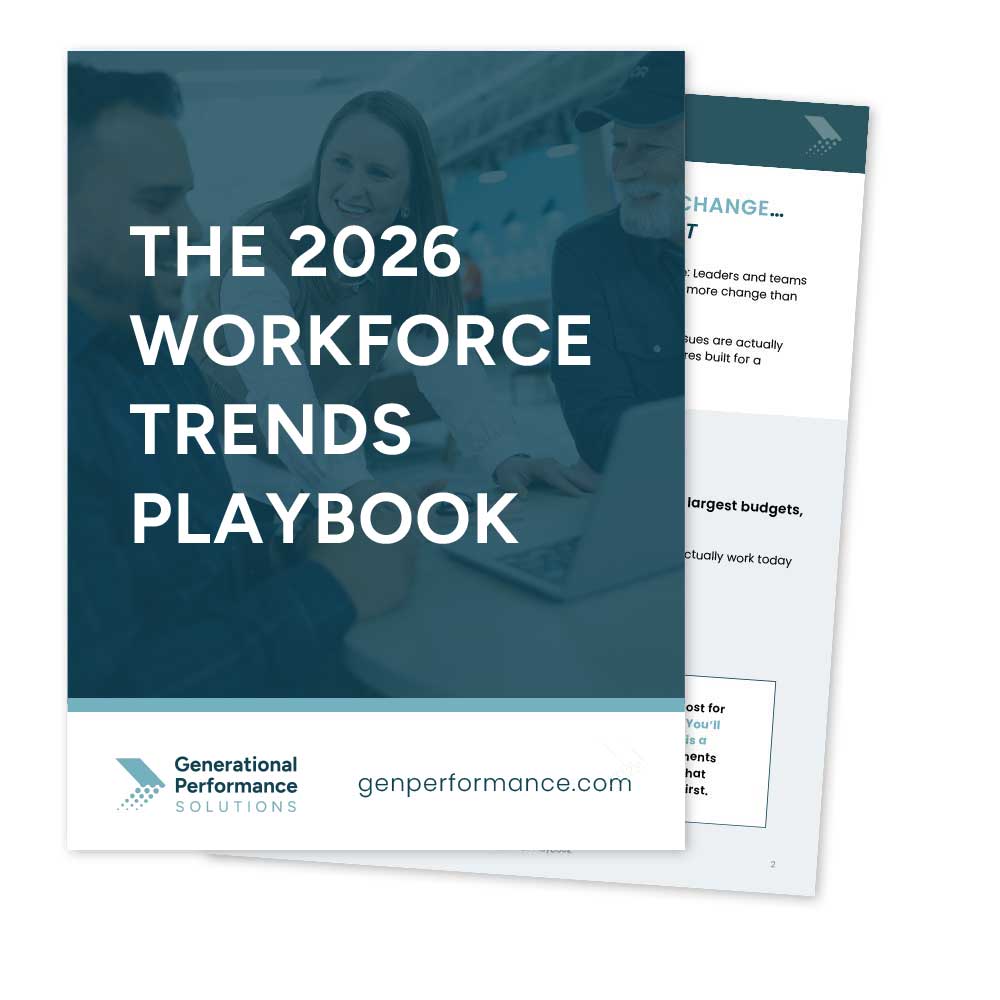At the start of 2025, one of the largest social media jump-scares in history happened: TikTok was banned for approximately 12 hours. If you weren’t aware this happened, you may be in the minority—in Q1 of 2025 (after the ban was lifted), there were around 170 million monthly active users on the app in the United States. And for those of you who have been on the app in any measure, you know: it’s not like the social media crazes that came before it. Yes, you can connect with friends on TikTok, but it primarily works to give you topical recommendations based on videos you’ve previously engaged with, meaning that you can find information of all kinds, from memes to fashion trends to politics to… interview tips. If you’re a business leader who is scratching your head over some of the interactions you’ve had with young professionals in recent interviews, TikTok may have had a bigger impact on that interview than you’d think.
As with all things internet, there is a lot of strong and valuable information about interviewing on TikTok. There are seasoned HR professionals and recruiters helping job-hunters to navigate difficult questions and maintain professionalism in interviews, and there is plenty of advice for how to stand out in a crowded field of LinkedIn applications. However, also as with all things internet, negative effects can happen, even from the most well-intentioned influences.
For example, some young professionals share their personal experiences of “how job-hopping led me to 7x my salary in 5 years” or other similar stories. While these stories may be true, they’re exceptions—yet seeing multiple similar anecdotes online can give viewers the impression that a six-figure salary by the age of 27 is normal and expected. Pair this with other videos sharing about “HR’s tendency to lie about salary,” and you have professionals coming into job interviews not only with very high financial expectations, but also predisposed to view any pushback with skepticism. Once you “follow the algorithm,” it’s easy to see just how quickly the expectations of interviewees and corporate leaders are diverging.
If this pattern feels like a vicious cycle to you, it’s because it is: Young professionals show up to interviews having “done their research.” They’re met with a much lower salary than they want or expect. They assume the company is bluffing, and they advocate for a higher number. In turn, the company rejects their salary expectations, and both sides walk away from the interaction with their stereotypes affirmed. Nobody wins in this scenario.
So, What Can You Do About It?
Fighting against the forces of the viral internet may feel like a fool’s errand, but there are a few ways that you can create a more seamless, collaborative interview and hiring process. Our team has pulled together a few tips to help you build (rather than burn) bridges when discussing salary with job candidates.
- Give credit where credit is due. First, make sure that you’re not walking into interviews with a posture of skepticism or unfair generational stereotyping. Recognize that while some candidates may have an unrealistic view of salary, many of them came by it honestly, and jumping to labels like “entitled” is neither fully accurate nor productive.
- Do your own research—and check it twice. If you want to fight a fair battle against the internet’s misguided messaging, it’s absolutely necessary that you offer a salary range that matches market value. The economy (and daily cost of living) has shifted at rapid rates over the past 8-10 years, and if your team isn’t performing regular salary evaluations, you may not only risk losing future talent… you could lose your existing talent as well. Not to mention, you could be accidentally affirming the stereotypes perpetuated online about companies keeping salaries lower. Don’t forget that in these types of misunderstandings, both sides can have good intentions and still play into unfair assumptions—so keep your side of the street clean, as they say.
- Be transparent. Much of the virality behind salary conversations stems from the guardedness of a position’s “true” salary range. To avoid any miscommunication, start conversations about salary early on in the interview process to avoid wasting both parties’ time (many companies already do this, of course, but we thought it was worth reiterating). If you aren’t honest about it up front, salary negotiations can feel like a game where the interviewee is forced to take a shot in the dark and guess what you think they deserve. Unsurprisingly, this dynamic doesn’t necessarily encourage a trusting environment. To further decrease the mystery around compensation, you can even share the salary range so that the interviewee doesn’t have to guess your range. (Some states are already enacting requiring salary transparency, so it’s an increasingly common practice anyway.) Not only does this create a culture of trust from your first interaction with future talent, but it also weeds out anyone with unrealistic expectations before the interview process even begins.
- Handle salary conversations with the attitude of an advocate. When your new hire joins the team feeling like their employer has their back, you’ve already gotten a jump start on retention right as your new talent walks through the door. With this in mind, it’s important for salary negotiations to feel like a “when you win, we all win” conversation. Make sure that whoever on your team handles salary negotiations is trained to represent the culture you’ve worked so hard to cultivate, and that means avoiding any hostility or enigmatic game-playing, while embracing a collaborative mindset. Once the contract is signed, the ripple effect of those conversations will stay with your new team member as they begin their journey with you.
As with all generational stereotypes, one tiny nugget of truth can often turn into a mountain of misunderstanding—and salary is one where that divide is very easily quantified. However, you have the power to change the tenor of these conversations and use them as bridges to not only connect with top talent, but also to be a change-maker in your industry. Who knows—one of your employees might even take to social media to brag about their own hiring process!
If you want more information about the priorities most valued by today’s top talent, download our 2024 Report!
Did you like this week’s post? Then you might like these posts below.
An Updated Conversation on Hybrid and Return to Work
Transforming Talent Retention: The Benefits and Wellness Report
How to Get Your Team to Show Up to Work on Time
What’s Next?
If your team is navigating generational friction, stalled performance, or culture misalignment—it’s time to take action.
At GPS, we help organizations unlock clarity, communication, and performance across every generation. And we don’t just talk about results—we deliver them in 90 days or less.
🎯 Let’s build a workplace that works for everyone.
Schedule your Free Planning Session today and start driving results that last.

